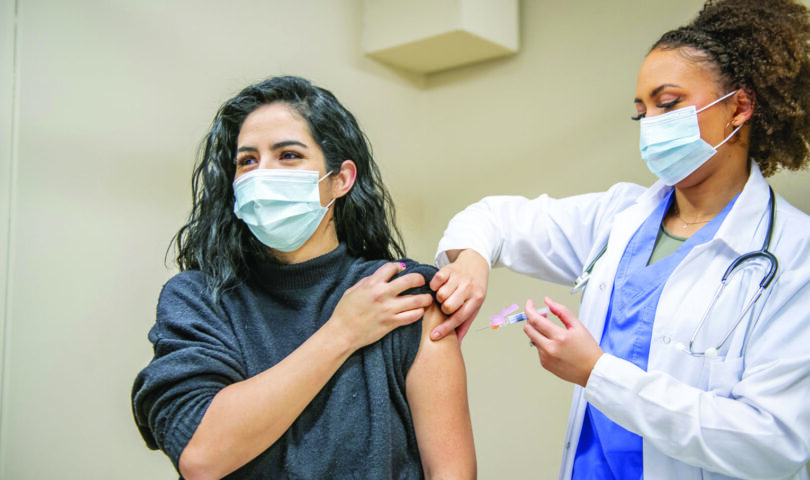Newsroom@DominionPost.com
As COVID-19 cases rise nationwide once more, there is concern about seasonal flu coinciding with the pandemic, affecting the health of West Virginians and worsening the strain on West Virginia’s health care system.
To protect yourself and your loved ones from the flu this season, the West Virginia Immunization Network encourages West Virginia residents to receive a flu vaccine.
With the ongoing spread of the virus that causes COVID-19 medical experts are concerned about the impact of the upcoming flu season on communities that are already struggling with the pandemic. In the past, influenza and COVID-19 have been capable of overwhelming the health care system on their own.
During last year’s flu season, COVID-19 mitigation strategies — such as mask-wearing, physical distancing and distance education — in addition to flu vaccination led to a mild flu season. However, with relaxed COVID-19 mitigation strategies and low flu vaccination rates at this time, there is concern that there will be a resurgence of flu this winter.
A recent flu outbreak at University of Michigan, in which there were over 525 cases of flu on the Ann Arbor campus, points to this possibility. As a result, the CDC recently issued a health alert about the increasing seasonal influenza activity, particularly among young adults.
Influenza is a contagious respiratory disease that can cause serious illness, hospitalization and death. Typically, the flu season in the United States runs from fall to late winter with the most flu activity between December and February, but some years influenza circulates as late as May.
West Virginians are encouraged to protect themselves from the flu and its consequences with annual flu vaccination. The CDC recommends flu vaccination for people six months of age and older.
Flu vaccination is particularly important for people who are at increased risk for severe illness from the flu. This includes older adults, children under 5, those who are pregnant or were recently pregnant, and individuals with certain chronic medical conditions, including diabetes, lung disease and heart disease.
The flu vaccine does not protect against COVID-19 and COVID-19 vaccination does not prevent the flu. Both vaccines are needed to protect against the two diseases. However, for those who have not yet been vaccinated against COVID-19, or who are due for their booster, flu and COVID-19 vaccines can be given at or around the same time.
“The flu vaccine is effective at preventing the flu, reducing its severity and preventing hospitalization. In fact, the CDC estimated that during the 2018-2019 flu season, influenza vaccination prevented about 4 million flu illnesses, 58,000 flu-related hospitalizations, and 3,500 deaths,” said Melissa Jensen, co-chair of the West Virginia Immunization Network and assistant professor in the University of Charleston physician assistant program. “This is why I make sure my family and I get the flu vaccine, and why I recommend flu vaccination to my patients every year.”
Flu vaccines are offered in many locations in West Virginia, including health care providers’ offices, health departments, pharmacies, community health centers and school-based health clinics. Local flu vaccination sites can also be found at vaccines.gov/find-vaccines/.
Children 18 years of age and younger who are uninsured, underinsured, Medicaid-eligible, American Indian or Alaska Native can get vaccines through the Vaccines for Children program. For help finding a local health care provider who participates in the VFC program, ask your child’s health care provider or contact a local health department.
For more information about the flu and flu vaccination, talk to a health care provider or visit: www.cdc.gov/flu.
TWEET @DominionPostWV




